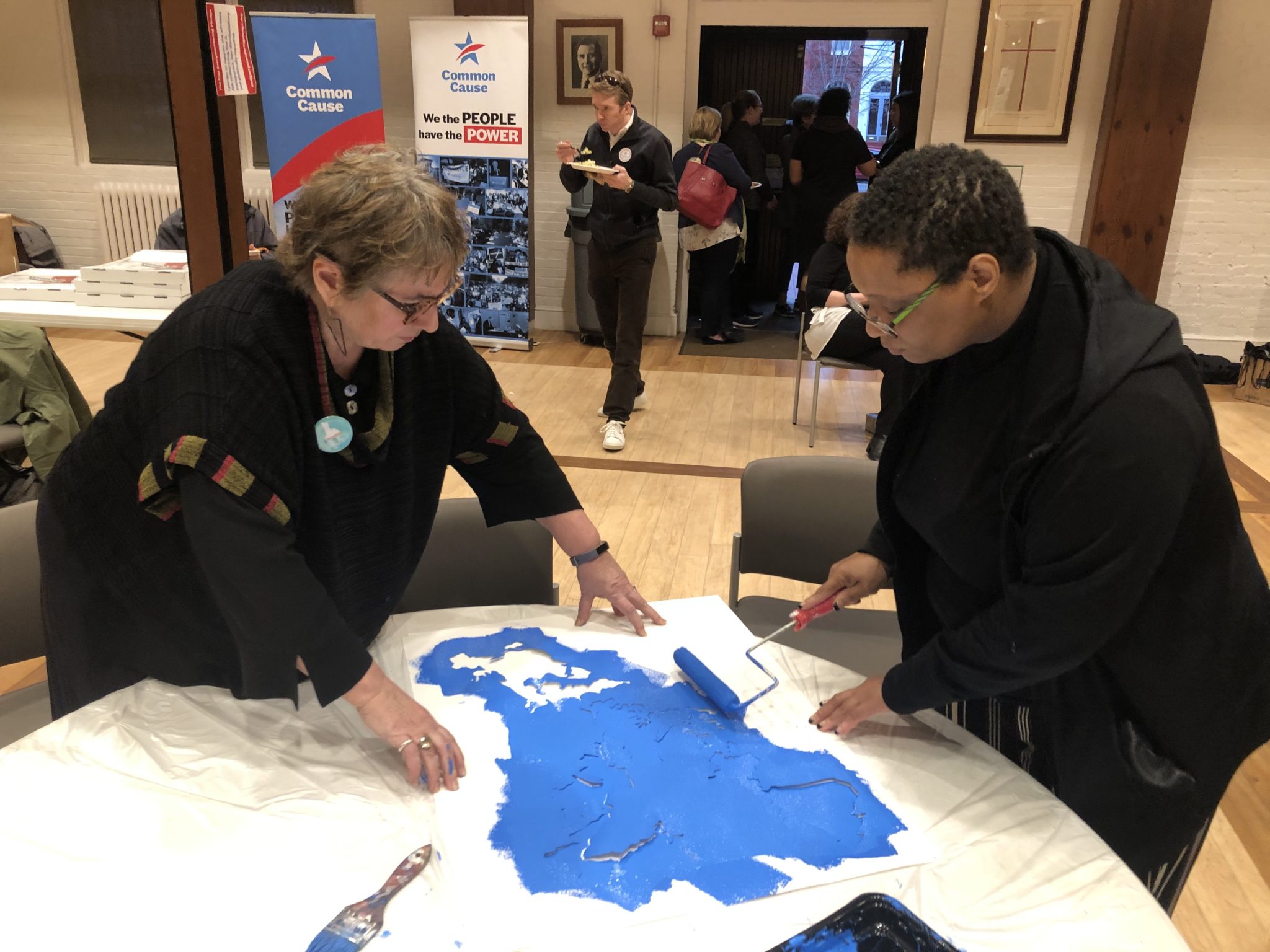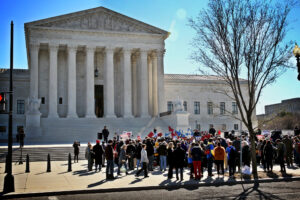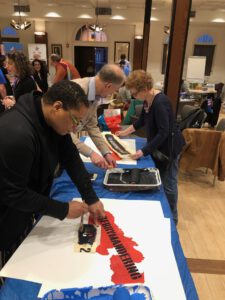Blog Post
From Prison to Gerrymandering: My Journey is the Only Straight Line
Related Issues

Growing up in the Nation’s Capital, I have always had more than a fleeting interest in politics, and while this was not the first time that I had a personal stake in the outcome of a cause – it was my first political rally. Turning the corner toward the Supreme Court, I could see the long line of people standing outside in the cold patiently waiting to get in to hear the oral arguments on the gerrymandering case Rucho v. Common Cause. I said so long to my brother and as he drove off I was in awe of the marble columns. As a DC native, I’d seen them before, but something was different about today. I was greeted with warm hugs from my colleagues and new friends at Common Cause and quickly became part of the crowd. I began passing out the signs I helped paint at St. Marks Capitol Hill Church the night before. The signs were cut into the exact shapes of these crazy districts.

“Hey, Hey, ho, ho, gerrymandering has got to go,” echoed off the building. I’d never fully understood the magnitude of the legal precedent set by a case being heard at the Supreme Court until now. Yet, I beamed with pride for everything I’ve learned, and the reason hundreds of people were gathering to protest the injustice of gerrymandering.
At some point during the rally, it dawned on me just how far I’ve come since Election Day 2016. The night Donald Trump defeated Hillary Clinton (I still think he stole the election) I watched the election results with a different group of people intensely following politics in the TV room of Building A3 at Alderson Federal Prison Camp in Alderson, West Virginia.
Alderson Federal Prison Camp had been my “home” since March 2016. I was convicted on charges my tax preparation business helped, albeit unwittingly, in a tax fraud scheme. On election night, the ladies and I were glued to the TV as if we had voted. Prison populations tend to follow elections closely because of the hope that the elected official will enact favorable laws for early release or criminal justice reform. Like most states, we could not vote because West Virginia law prohibits residents convicted of felony crimes from voting until after they have completed their entire sentences including prison term, parole, and probation. Once we were moved to Alderson, we became residents of West Virginia, not our home states.
In the last half a century, the prison population has grown rapidly at a rate of 1000% even though violent crimes have decreased. Currently, there are 2.3 million people incarcerated in America. A major consequence of the rise in the prison population is the skewed reality of electoral districts that contain prisons taking resources away from our hometowns and redistributing them to the small rural towns like Alderson.
Prison Gerrymandering is the practice of counting incarcerated people as residents of their prisons when drawing electoral maps, not of their home communities — even though people in prison are unable to vote in the prison’s district. The result? A form of gerrymandering that unfairly skews political representation and federal monies towards the rural, whiter communities where prisons are often built.
While some states are taking steps to end prison gerrymandering altogether, some are doing absolutely nothing. With Census Bureau data being used today for redistricting at all levels of government, prison populations are the key to who wins in many elections.
Prison gerrymandering is a problem because it distorts the representation and creates an unfair paradoxical shift in voting power. Except for only two states, Maine and Vermont, incarcerated individuals are not allowed to vote. However, I’m one of the lucky ones as DC is one of only 15 jurisdictions that have immediate restoration of voting rights upon release from prison.
While the solution seems so simple – states can and should prohibit state, county and municipal legislative districts from using prison populations, in reality, it is not. States need to develop a system within their state to adjust the Census Bureau redistricting data. While some states have been progressive in addressing the problem, others have not. States such as California, Delaware, Maryland, New York, and most recently Washington state, have all successfully passed legislation addressing prison gerrymandering statewide. An act to amend the Delaware Code relating to state government determining district boundaries for incarcerated individuals passed unanimously. Other states such as Connecticut, New Jersey, Oregon, Rhode Island, and Texas have recognized the need for reform and have recently introduced legislation.
In the end, the best solution to prison gerrymandering is to count incarcerated people at their home communities. This solution would immediately restore balance to political power and end the electoral harm prison gerrymandering has caused.